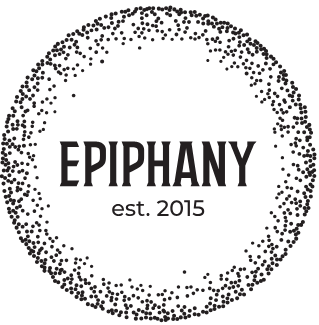In the rapidly evolving landscape of mental health treatment, a captivating and controversial figure has emerged – the magic mushroom, with its psychoactive compound, psilocybin. As scientific interest in psychedelic substances experiences a renaissance, researchers are increasingly turning their attention to psilocybin, exploring its potential therapeutic applications, particularly in addressing complex mental health conditions such as PTSD, anxiety, and depression.
The resurgence of interest in psychedelic substances marks a paradigm shift in mental health research. No longer confined to counterculture or stigmatized as substances of abuse, psychedelics, and in particular, psilocybin, are undergoing a renaissance in scientific exploration. This chapter explores the historical context, cultural shifts, and the scientific curiosity that have contributed to this reawakening.
At the heart of the magic mushroom lies psilocybin, a compound with a rich history of use in traditional and indigenous cultures. This chapter delves into the pharmacology of psilocybin, its interaction with the brain’s serotonin receptors, and the altered states of consciousness it induces. Understanding the biochemical underpinnings of psilocybin is crucial for unraveling its therapeutic potential.
Leading universities have become the epicenters of groundbreaking research into psilocybin’s therapeutic effects. Johns Hopkins University, in particular, has emerged as a trailblazer in this field. This chapter explores the methodologies, findings, and implications of key studies conducted at Johns Hopkins and other esteemed institutions, providing a comprehensive overview of the current state of psilocybin research.
3.1 Johns Hopkins University: Trailblazing Psilocybin Research
The studies conducted at Johns Hopkins have been pivotal in shaping our understanding of psilocybin’s effects on mental health. This section delves into specific research protocols, participant experiences, and the profound and sustained improvements reported in mood and overall well-being after controlled psilocybin administration.
The therapeutic potential of psilocybin extends beyond its biochemical effects to the contextual setting in which it is administered. This chapter explores the principles of psychedelic-assisted therapy, the importance of set and setting, and the integration of mystical or transcendent experiences into mental health treatment.
4.1 The Multidisciplinary Association for Psychedelic Studies (MAPS): Healing Trauma with Psilocybin
Initiatives led by MAPS have focused on harnessing the potential of psilocybin-assisted therapy for individuals grappling with PTSD. Through controlled administration and therapeutic support, psilocybin has shown promise in facilitating the processing of traumatic experiences and alleviating symptoms of PTSD.
4.2 Imperial College London: Anxiolytic Effects of Psilocybin
Researchers at Imperial College London have specifically investigated the anxiolytic effects of psilocybin. This section explores findings that suggest psilocybin’s ability to alter brain activity, mitigating the intensity of negative emotions associated with anxiety. Participants in these studies reported sustained reductions in anxiety symptoms and an enhanced sense of overall well-being.
4.3 The Beckley Foundation and UC Berkeley: Unraveling Antidepressant Effects
Collaborative efforts between the Beckley Foundation and institutions like the University of California, Berkeley, have focused on unraveling the antidepressant effects of psilocybin. Preliminary data suggests that psilocybin may modulate neural circuits associated with mood regulation, providing a rapid and enduring antidepressant effect.
While the results of psilocybin research are undeniably promising, ethical considerations and participant safety are paramount. This chapter examines the ethical frameworks guiding psychedelic research, the challenges of navigating the regulatory landscape, and the importance of ensuring the well-being of participants in these transformative studies.
Beyond the realm of mental health, psilocybin and magic mushrooms are being explored for their potential in enhancing creativity, fostering spiritual experiences, and even addressing existential distress in patients facing life-threatening illnesses. This chapter examines the broader implications of psilocybin’s therapeutic potential and the diverse avenues of ongoing research.
As we stand at the forefront of a new era in mental health research, this chapter explores the trajectory of psilocybin research. Universities and research institutions worldwide are joining the odyssey, contributing to the ever-growing body of knowledge surrounding the magic mushroom’s potential applications. Continued exploration and collaboration on an international scale promise to uncover new dimensions of psilocybin’s therapeutic capabilities and refine its integration into mainstream mental health care.
The journey into psilocybin’s potential has taken us through a complex and fascinating landscape. From the renaissance of psychedelic research to the biochemical mysteries of psilocybin, the academic pioneers leading the charge, and the ethical considerations that guide this transformative work, we have witnessed a comprehensive exploration into the magic mushroom’s potential. As research progresses, the prospect of magic mushrooms offering relief to those grappling with PTSD, anxiety, and depression sparks optimism for a paradigm shift in mental health care. The enchantment of the psychedelic renaissance stands as a beacon, guiding us toward innovative, effective treatments that hold the potential to transform lives and reshape the mental health treatment landscape for years to come. The magic mushroom’s journey is not merely a scientific exploration; it is a magical odyssey weaving together science, healing, and hope for a brighter future in mental health.

